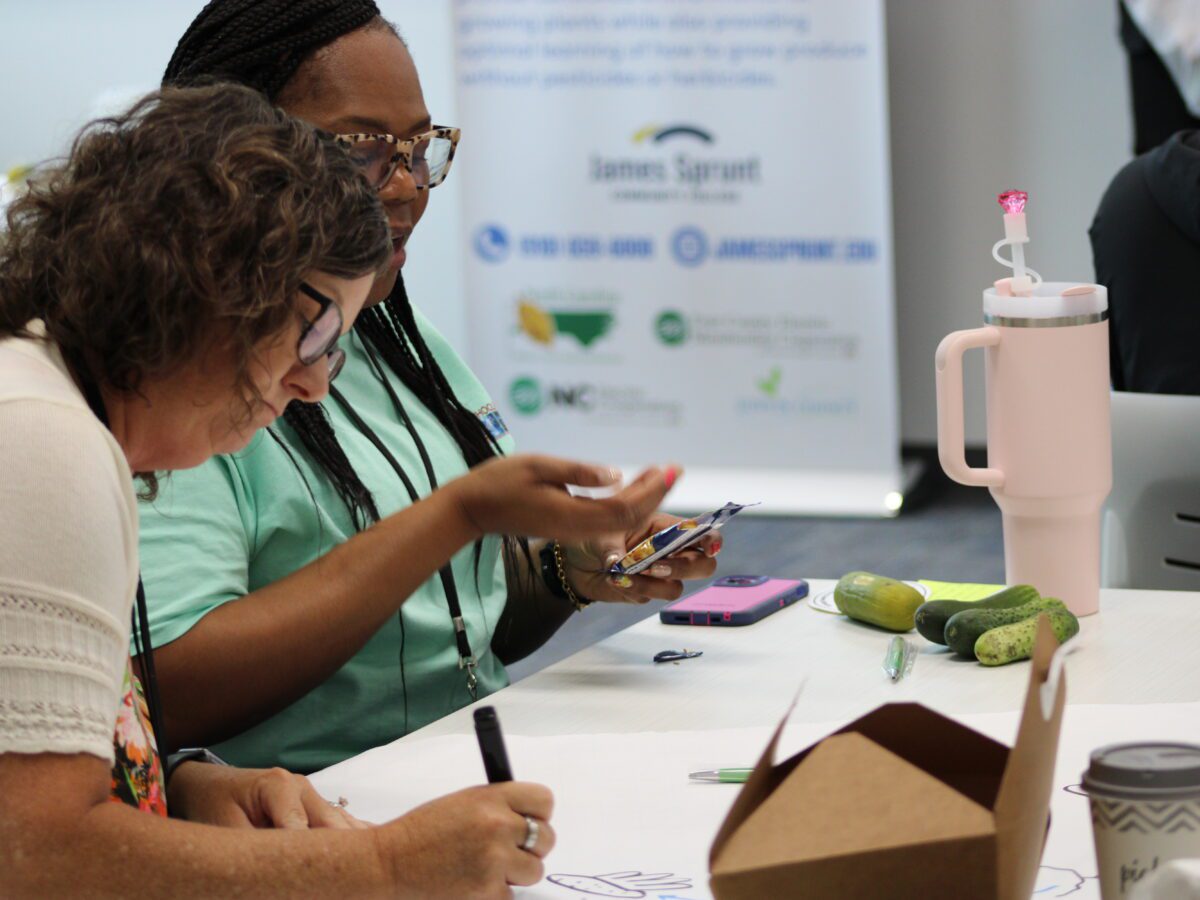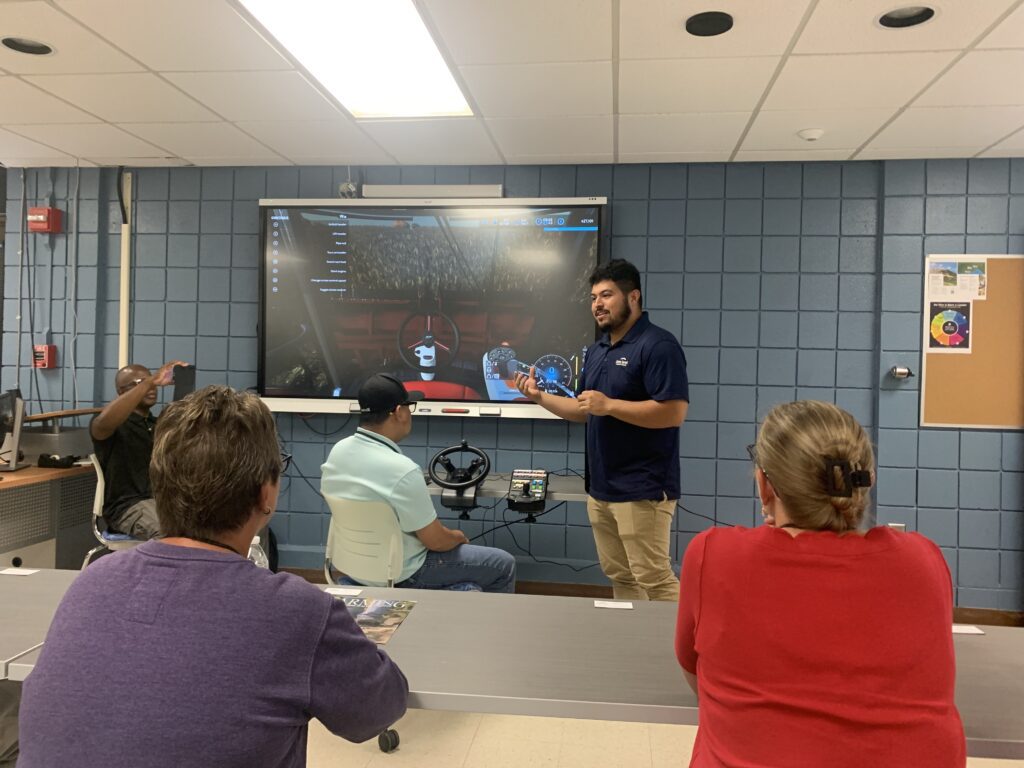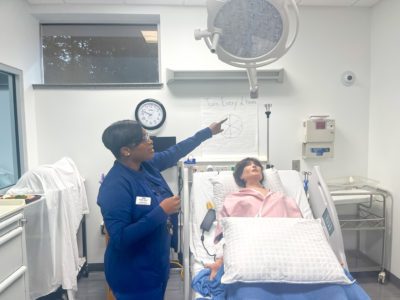
|
|
Agriculture is a key part of everyday life. STEM East wants to make sure students know that.
A workshop at James Sprunt Community College this week gave teachers professional development and a look inside the agriculture business. The training is one of many events offered by the STEM East Network to help build a workforce pipeline into key industries in eastern North Carolina.
The workshop, titled Smart Agriculture Institute, was organized by three lead K-12 teachers. They led the 20 participating K-12 teachers through agriculture-related lesson plans that they could do with their students.
One example was sorting pictures of food and objects into buckets based on where they are sourced from — farm, factory, store, or natural processes? — while another was playing a game of true or false with students using farm-related questions.
Erica Brown Edwards served as one of the lead teachers for the workshop. She is very familiar with agriculture in education as a North Carolina native and third-grade teacher for the Department of Defense. She hopes that teachers will learn how to integrate the different careers agriculture has to offer into the classroom.
“One of the best things that I saw today were the teachers doing an activity with cucumbers and how the process works turning cucumbers into pickles, and the collaboration that they had, as well as the conversations that we had, and how they would take it back and use it in their classrooms — all for the betterment of their students,” Edwards said.
The participants were made welcome on the community college’s campus. In addition to a campus tour, they also got a close look at their agricultural science lab.
“It’s important for our youth to know where things come from and how things are made. So you guys and girls are coming and trying to figure out ways to incorporate that into your lessons,” Elizabeth Howard, the college’s dean of business and industry, said. “It does mean a whole, whole lot.”

After the classroom activities and tour on day one of the workshop, participants had time to reflect.
Evelyn Mainoo, an agriculture science teacher from Bertie County, said she believed it was a good opportunity for her.
“I’m going back very energized to do a lot of new stuff with my students, very exciting activities. We have gone through a lot of curriculum, a lot of lesson plans, so I’ll go back and do things differently,” Mainoo said.
On the second day of the free program, teachers also had the opportunity to interact with a panel of local farmers and the Center for IOT Engineering and Innovation at Eastern Carolina University.
The workshop was part of the STEM East network‘s Industry In Schools Initiative. STEM East is a collaboration across 12 counties in eastern North Carolina that works to make sure students have opportunities to engage in STEM learning that connects to career opportunities and needs. The network consists of private and public partnerships, including schools and regional employers, for the sake of creating career pathways. It is a part of the NC East Alliance, which is a regional economic development group.
Industry in Schools is a summer workshop series offered to teachers in K-12 schools. Areas covered during the inventions included Aviation Science, Green Energy, BioPharma, Blue Economy, Health Science, and Agriculture. The eight sessions held this summer came after the program received positive feedback from hosting three sessions last summer.
Bruce Middleton is the executive director of STEM East. He said the challenge is that people are not always aware of the career pathways that are available to them in eastern North Carolina.
“If you’re in a CTE class, that’s fine. You’ve already chosen the pathway, where you’re going, you know what you’re doing, you know what the opportunities are,” Middleton said. “But if you’re in a 10th-grade biology class, you may never really know what’s out there in terms of the opportunities that are available.”
Patrick Miller, assistant director of STEM East, said that he wants the workshop to lead to more schools holding a STEM School of Distinction designation. The recognition is given to schools that have implemented STEM based on guidance provided by DPI.
“But what we want to do is help you all go back to your school districts and say, hey, let’s do this. Let’s make the STEM East region the densest cluster of STEM Schools of Distinction in the state,” Miller said.
More information about STEM East and its programs can be found here.




